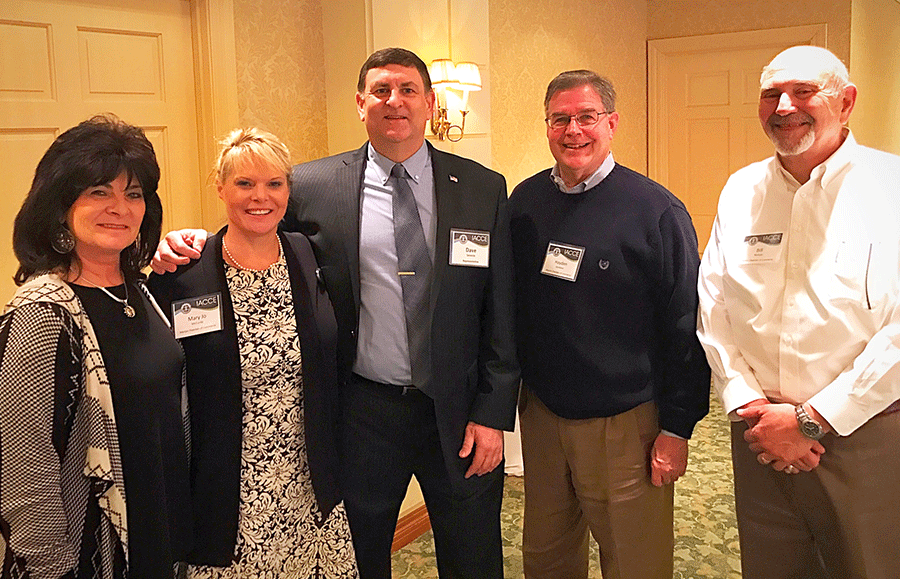| Marion Chamber members attend IACCE Legislative Summit Members from the Marion Chamber of Commerce attended the IACCE Legislative Summit on February 8 in Springfield. Members from the Marion Chamber of Commerce attended the Illinois Association of Chamber of Commerce Executives Legislative Summit on February 8 in Springfield.  Here are some notes from the event: IACCE/Illinois Chamber of Commerce Legislative Summit – February 8, 2017 – Sangamo Club NOTES MISCHA FISHER, Economic Development Policy Advisor to Governor Rauner
PAUL LaSCHIAZZA, PRESIDENT OF AT&T ILLINOIS
TRANSFORMING STATE GOVERNMENT – CONNIE BEARD, DIRECTOR, ILLINOIS DEPARTMENT OF REVENUE
TODD MAISCH, PRESIDENT & CEO, ILLINOIS CHAMBER OF COMMERCE ON STATE OF ILLINOIS ‘GRAND BARGAIN’ AND EDUCATION FUNDING
KEVIN COURTOIS – U.S. CHAMBER OF COMMERCE GREAT LAKES REGION
ADVOCACY/GOVERNMENT AFFAIRS PANEL MODERATED BY MIKE PAONE, IOM – JOLIET AREA CHAMBER OF COMMERCE & IACCE GOVERNMENT AFFAIRS COMMITTEE CHAIR, NATHAN HOFFMAN – ILLINOIS CHAMBER OF COMMERCE, KEVIN CORTOUIS – U.S. CHAMBER OF COMMERCE
Published: 02/08/17 |